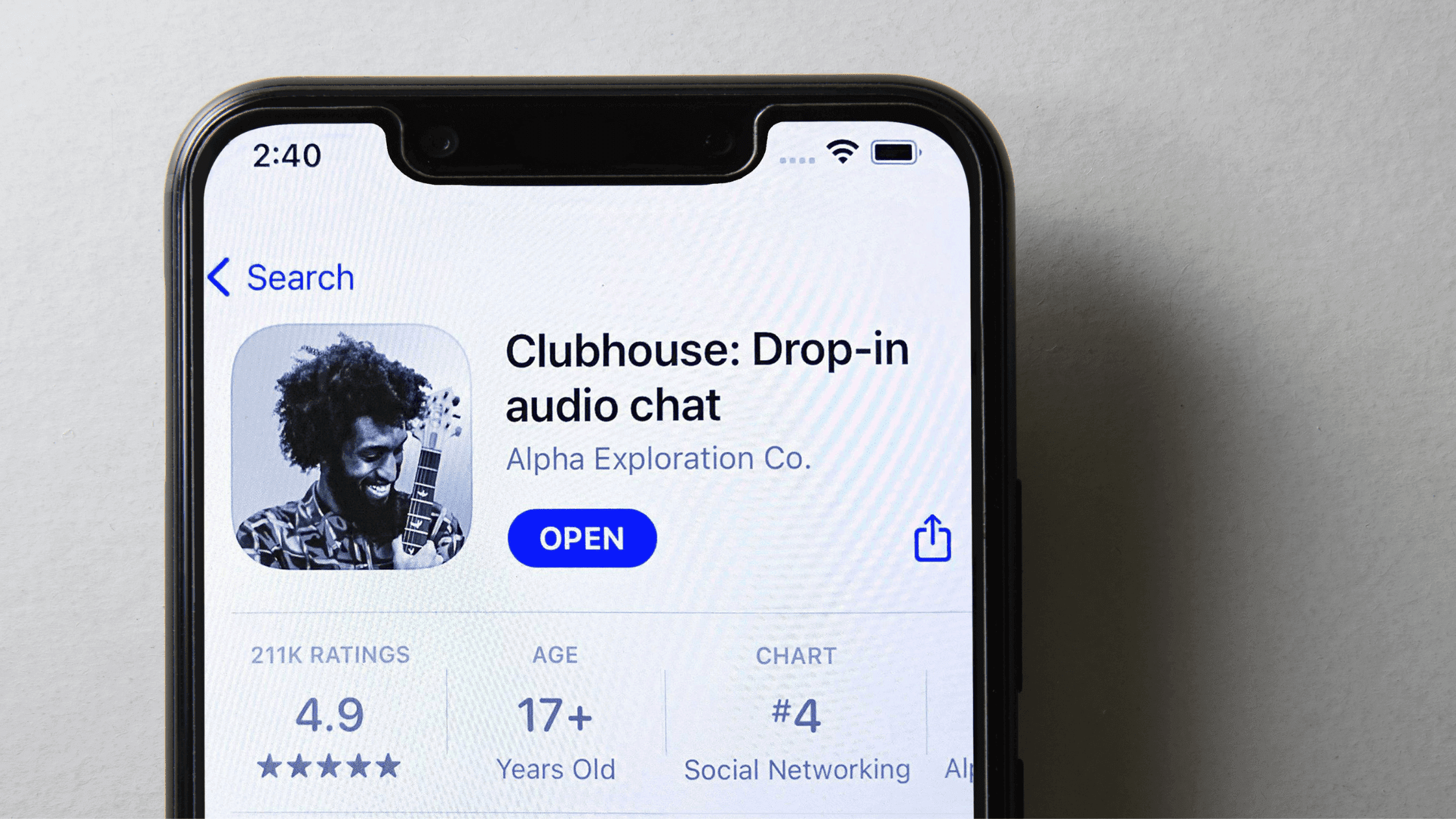By now, you have heard of the new social network taking the social media scene by storm: Clubhouse. The drop-in audio chat platform grew into a sensation, almost overnight, because it gives people the very thing they crave right now – connection.
Created by ex-Google members Paul Davison and Rohan Seth in April of 2020, the entire concept centers around facilitating fun or educational discussions. From setting your intentions for the day to Q&A panels with career coaches to how to market your CBD business, Clubhouse has no shortage of topics to cover.
Where conference call meets podcast meets Houseparty, Clubhouse is specifically designed for people who have questions. With rooms hosted by educators, experts, and industry professionals, it is all about teaching others by meeting them where they are and speaking at their level.
Why Clubhouse is so popular
The app gained major attraction for a number of reasons, perhaps the biggest being that it is exclusive. It is currently only available to iOS users, meaning only those with an iPhone can download Clubhouse and reserve a spot on the waiting list.
According to the Clubhouse App Store description, “Right now, you need an invite to sign up. Anyone can get one by joining the waitlist, or by asking an existing user for one.” In other words, until you have received a unique invite link from someone who is already using the app, you’re stuck.
Another appeal is the audio-only aspect. At a time when everyone is tucked away at home and facing growing Zoom fatigue of hearing “Can you see my screen?”, Clubhouse offers a space for users to share their thoughts or ask their questions without worrying about looking unprofessional.
Who is on Clubhouse and how are they using it?
One of the best parts about Clubhouse is the egalitarianism of it all. You never know who you’ll end up in a room with. From major players like Gary Vee, USA Shark Tank members, and even Paris Hilton, people from all walks of life and all over the world are on Clubhouse – and you can talk to them like you’ve been invited on their podcast.
Just by spending some time in a couple of rooms, you will find speakers telling audience members to send them a DM or connect with them later to give advice, send service or product information, and even build business partnerships.
In this way, the app offers a unique opportunity to connect with others in your industry, as well as to network with other business leaders no matter how far out of reach they may seem on other platforms.
Beyond the mentorship potential, you can also use it to become a thought leader yourself. This is a major benefit for people in the growing cannabis space to share their day-to-day experience and learn more from consumers and other business owners.
Additionally, Clubhouse has become popular with the Black community. Thousands of “clubs” or groups have been created to connect people from all over and share their experiences. In fact, Black Cannabis Magazine boasts one of the biggest cannabis-related clubs on the app. This is especially useful for an industry like ours that is dedicating itself to diversity, equity, and inclusion with things like social equity programs.

How can cannabis businesses use Clubhouse?
As the cannabis industry continues to grow, we continue to see unique and innovative ways that brands choose to stand out. Emphasizing thought leadership and cultivating personal brands of key representatives of a company are two of the most interesting angles in that we see cannabis businesses sharpen their competitive edge.
From Viola emphasizing the popularity of NBA player Al Harrington to Monogram’s entertainment-centered branding, leveraging Jay-Z’s relationships with the music industry, personal branding is a powerful tool within the cannabis industry.
Even for those of us who are far from being famous, key figures in the industry carry major influence in trends that businesses follow – from policy advocates, marketing professionals, CEOs, and more.
Clubhouse provides a space for cannabis leaders to share their thoughts, facilitate discussions, and even learn from their customers. In tandem with buffing up your personal brand as an individual who is part of the industry, businesses thrive in such a fast-paced environment by showing up consistently as thought leaders. Providing value goes far on any social media platform and Clubhouse is no different.
These opportunities make the app a place for market research to thrive and for cannabis businesses to earn sustainable footing as an expert. As more people slowly receive invites to join, it will pay off big to have spent time positioning yourself as an expert and start gaining followers early.
Clubhouse humanizes your cannabis brand
Clubhouse also offers a new way to humanize your business to others. The voice-note aspect of Clubhouse makes interactions on the platform feel more personal. You can host rooms with others, much like on a live panel or webinar, hold Q&A sessions, and more.
Both a benefit for the cannabis industry and a disadvantage to users is the fact that Clubhouse does not currently have any in-app moderating. In fact, there have been some early issues moderating offensive and inappropriate content.
Most social media platforms can use algorithms and spam filters to automatically detect racist and offensive language, to some extent, or even scan images and audio. Because Clubhouse is completely audio-based, it relies on its users to police each other within the platform. This means there is an easy opportunity for things like hate speech to make their way onto Clubhouse.
On the flip side, it means content such as selling-language related to cannabis, open discussion about smoking culture, and so on, is not flagged.
The challenges with Clubhouse
The early months of Clubhouse certainly look promising and show no signs of slowing down as users continue to use the app in ways that work for them and their schedule. However, much like we saw with the phenomenon of TikTok, it isn’t always fun and games.
Bigger players, such as Facebook and Instagram are working on or have already launched features that mimic the attraction of Clubhouse. For instance, the New York Times published that Facebook is building a similar product to Clubhouse – and they’re not the only one. USA Shark Tank shark Mark Cuban has been involved in an app called Fireside that is eerily similar to Clubhouse. Further, Instagram released a new feature in early March called “Live Rooms” that allows up to 4 users to host a live room together.
Another concern about Clubhouse is its lack of inclusivity when it comes to disabilities. Being audio-only, there is no way to access live open/closed captioning or even transcripts. With that being said, the developers do appear to be working on improvements in this area. For instance, the latest app update includes: “Improvements to accessibility / VoiceOver. We tuned the way our VoiceOver feature works, adding better support for things like in-app toasts and speaker invitations.”
As with all rising innovations, Clubhouse shows immense promise with its own set of unique challenges. However, it is hard to deny the potential that the app holds for the cannabis industry.
With the ability to learn valuable information from virtually anyone, Clubhouse is an app that users of all industries and passions are eager to be a part of. Overall, Clubhouse presents the opportunity to engage deeply with your audience and other industry professionals while multitasking and still connecting meaningfully. It’s the app that was meant for a pandemic society.
Learn more about marketing trends and cannabis industry news by subscribing to our newsletter!
